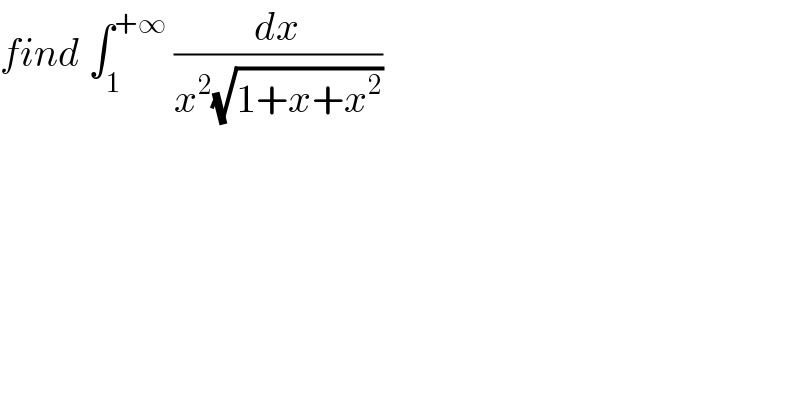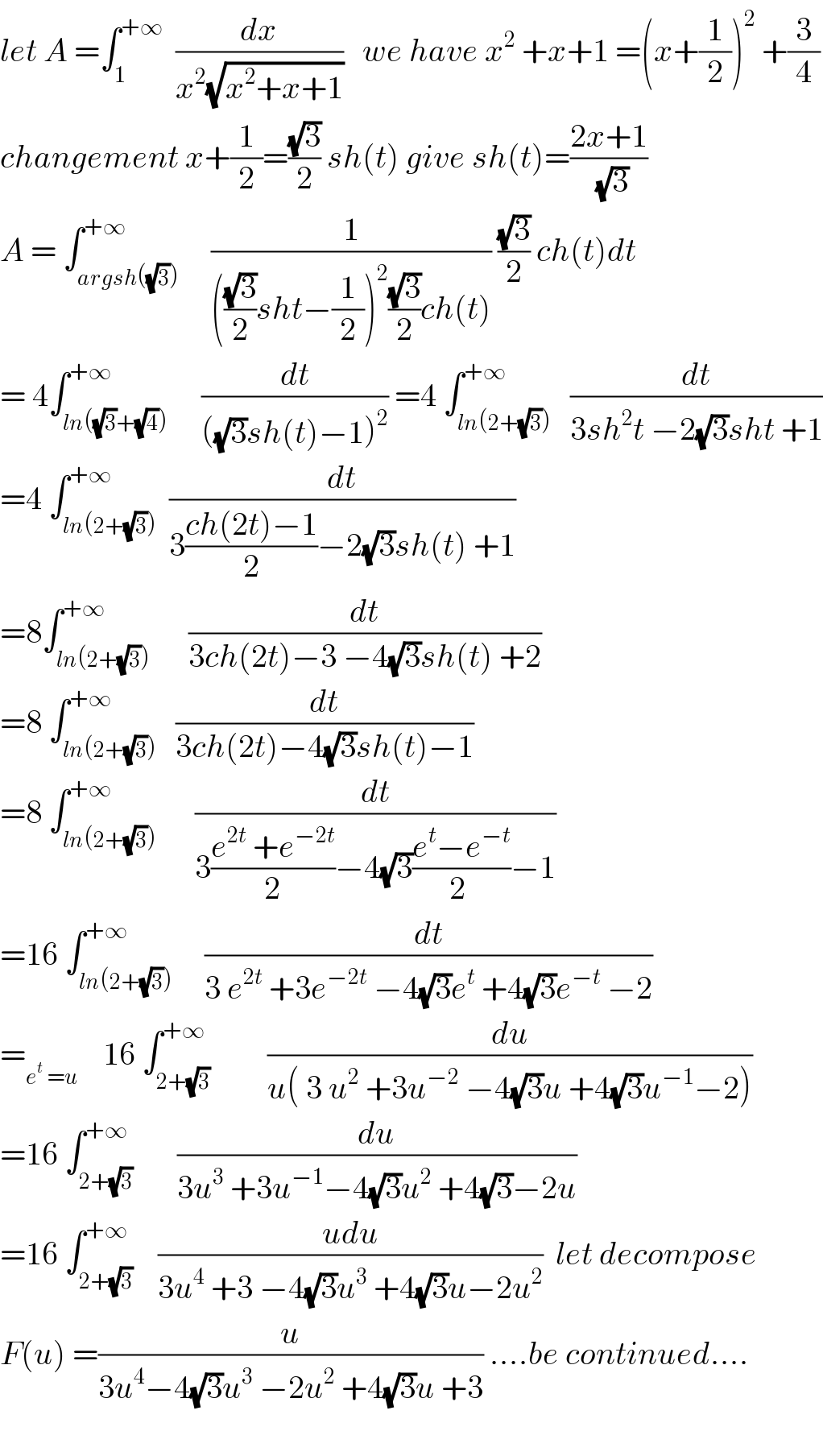
Question and Answers Forum
Question Number 64866 by mathmax by abdo last updated on 22/Jul/19

Commented by mathmax by abdo last updated on 23/Jul/19

Commented by ~ À ® @ 237 ~ last updated on 25/Jul/19
![let us change u=(1/x) du=−(dx/x^2 ) then we have I=∫_(0 ) ^1 ((udu)/(√(1+u+u^2 ))) =(1/2)[∫_0 ^1 ((2u+1)/(√(1+u+u^2 ))) du −∫_(0 ) ^1 (du/(√(1+u+u^2 )))] for the 2^(nd ) integral J we knows that 1+u+u^2 =(3/4)[(((2u+1)/(√3)))^2 +1] let us change v=arctan(((2u+1)/(√3))) dv= (((2/(√3))du)/((((2u+1)/(√3)))^2 +1)) so J=∫_0 ^1 (du/(√(1+u+u^2 )))=∫_(π/6) ^(π/3) (√(tan^2 v+1)) dv=∫_(π/6) ^(π/3) (dv/(cosv))=∫_(π/6) ^(π/3) ((cosv dv)/((1−sinv)(1+sinv)))=∫_(π/6) ^(π/3) (1/2).[((cosv)/(1−sinv)) +((cosv)/(1+sinv))]dv =[(1/2)ln∣((1+sinv)/(1−sinv))∣ ]_(π/6) ^(π/3) =ln(((4+2(√3))/3)) Now I=(1/2).( [2(√(1+u+u^2 ))]_0 ^1 − J )=(1/2).[( 2(√(3 )) −2)−ln(((4+2(√3))/3))]](Q65093.png)
Commented by mathmax by abdo last updated on 28/Jul/19

